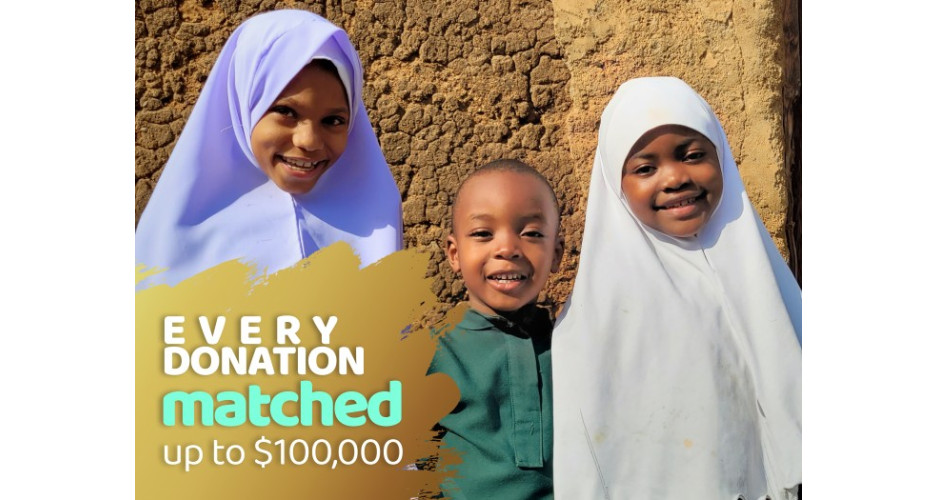
Orphans Waiting for a New Home
Target: £30,000
Raised: £0
0% Complete
There are an estimated 1,300,000 orphans and 437,000 street children in Tanzania.
As a result, legally registered orphanages and children’s homes are severely overcrowded and struggling to absorb the numbers. This has led to the proliferation of unregistered establishments where vulnerable children live in squalor and are sometimes subject to exploitation and abuse.
Our Social Worker regularly meets children forced to work by unscrupulous leaders of illegal orphanages.
The Project
The Project
The Project
Kijana Kwanza is now reinventing the welfare model for orphaned and abandoned children aged 5-12 years. We have recently purchased a 1-acre plot in Shabaha District, and we will shortly start construction of a new children’s complex.
Artist's Impression of Residential Block at New Children's Home
The total cost of this ambitious project is £750,000/$995,000 and is expected to take up to 2 years to construct. Construction is scheduled to start in 2024 and over £300,000/$390,000 has ALREADY been raised!
Why is this project different?
We believe that children aged 5-12 years should grow up in a loving family. Where a child has been abandoned due to poverty, we will prioritise family reunification, by supporting the family unit to stay together or place the child in a foster family. The new children’s home will operate as an emergency shelter – and only in the most challenging circumstances will children be kept in long-term care on-site.
Once placed in community care, families will continue to receive financial and in-kind support, scheduled and surprise home visits from social workers and children will attend weekly activities on-site at the children’s home.
Zakat will be used to pay for the cost of sheltering and feeding Muslim children.
About Kijana Kwanza (Young People First)
Kijana Kwanza (Young People First) is a grassroots project based in Moshi, Tanzania that empowers children and young people with the skills and opportunities to prepare them for a future without poverty.
The organisation directly sponsors over 200 children and young people, most of whom are orphaned, abandoned or from single-parent families, who reside in the community, in foster care or on-site at one of our children’s homes or youth hostels. Most of our children and young people attend school or are enrolled in a vocational course at college, whilst some undertake apprenticeships or work-shadowing in local industry. Outside of formal education, we deliver an extensive programme of extra-curricular learning, which emphasises soft skills development, leadership training and digital inclusion.
Aside from direct student sponsorship, Kijana Kwanza delivers a variety of day services and social welfare provision from its HQ in Moshi Town, for the wider community of children, young people and their families. These include free and subsidised English language and Computer classes, a Study Café, hardship grants and interest-free loans, seasonal campaigns, community events and microfinance initiatives.
For a full list of our activities, visit www.kijana-kwanza.org.
There are an estimated 1,300,000 orphans and 437,000 street children in Tanzania.
As a result, legally registered orphanages and children’s homes are severely overcrowded and struggling to absorb the numbers. This has led to the proliferation of unregistered establishments where vulnerable children live in squalor and are sometimes subject to exploitation and abuse.
Our Social Worker regularly meets children forced to work by unscrupulous leaders of illegal orphanages.
The Project
The Project
The Project
Kijana Kwanza is now reinventing the welfare model for orphaned and abandoned children aged 5-12 years. We have recently purchased a 1-acre plot in Shabaha District, and we will shortly start construction of a new children’s complex.
Artist's Impression of Residential Block at New Children's Home
The total cost of this ambitious project is £750,000/$995,000 and is expected to take up to 2 years to construct. Construction is scheduled to start in 2024 and over £300,000/$390,000 has ALREADY been raised!
Why is this project different?
We believe that children aged 5-12 years should grow up in a loving family. Where a child has been abandoned due to poverty, we will prioritise family reunification, by supporting the family unit to stay together or place the child in a foster family. The new children’s home will operate as an emergency shelter – and only in the most challenging circumstances will children be kept in long-term care on-site.
Once placed in community care, families will continue to receive financial and in-kind support, scheduled and surprise home visits from social workers and children will attend weekly activities on-site at the children’s home.
Zakat will be used to pay for the cost of sheltering and feeding Muslim children.
About Kijana Kwanza (Young People First)
Kijana Kwanza (Young People First) is a grassroots project based in Moshi, Tanzania that empowers children and young people with the skills and opportunities to prepare them for a future without poverty.
The organisation directly sponsors over 200 children and young people, most of whom are orphaned, abandoned or from single-parent families, who reside in the community, in foster care or on-site at one of our children’s homes or youth hostels. Most of our children and young people attend school or are enrolled in a vocational course at college, whilst some undertake apprenticeships or work-shadowing in local industry. Outside of formal education, we deliver an extensive programme of extra-curricular learning, which emphasises soft skills development, leadership training and digital inclusion.
Aside from direct student sponsorship, Kijana Kwanza delivers a variety of day services and social welfare provision from its HQ in Moshi Town, for the wider community of children, young people and their families. These include free and subsidised English language and Computer classes, a Study Café, hardship grants and interest-free loans, seasonal campaigns, community events and microfinance initiatives.
For a full list of our activities, visit www.kijana-kwanza.org.
